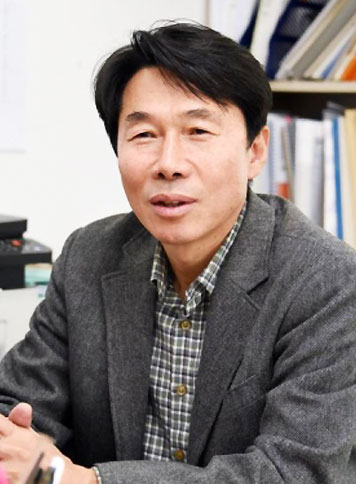In the spirit of openness, transparency, and the
value of widespread publicity, we strive to establish
the best hub for Indian studies globally.

Since its establishment in 1995, the Institute of Indian Studies (IIS) at Hankuk University of Foreign Studies has conducted comprehensive and systematic research on the South Asia region, including India which is abundant in unique humanistic assets. Ancient India was a place that witnessed the birth of one of the world's oldest civilizations, namely the Indus Valley Civilization. Also, India is the country where the largest number of languages are spoken, and the birthplace of two of the world's major religions, namely Hinduism and Buddhism. In terms of politics and economy, India is the world’s largest democracy and has one of the world’s top three consumer markets. Moreover, the Korean government’s recent “New Southern Policy,” combined with the critical China factor, further highlights the importance of India for Korea in areas including politics, economy, diplomacy and security.
In 2017, the IIS was awarded a Humanities Korea Plus (HK+) project grant from the National Research Foundation of Korea (NRF) to conduct research on an agenda titled “Great Transition in India: A Korean Perspective on Indian Studies. India is experiencing a great transition as “the post-reform generation” strikes out into the world. The thinking, political Preferences and consumption patterns of the generation born after India’s economic reforms of 1991 differ greatly from those of their elders. Unlike past generations, they are quick to access and acquire new information, and adapt to the changing global trends as citizens of the world. We suggest these entire changes in Indian society to be called as the “Great Transition.”
With the aim of achieving a long-term vision of the “Establishment of the Global Institute of Indian Studies,” our institute is promoting Five Strategic Initiatives: leading research activities in Indian studies; building research infrastructure; facilitating research exchanges at home and abroad; providing social services based on research outcomes; and training students, officials and businesspeople on India. Our institute is also actively implementing its research agendas to achieve a number of objectives, including strengthening the research capacity in Indian and South Asian studies, disseminating research outcomes to society at large, and raising awareness of our institute in Korea and abroad.
Furthermore, in order to popularize the field of Indian humanities and disseminate research outcomes to society at large, the IIS has opened a Korean-style Gandhi Ashram in major cities of Korea. The IIS Gandhi Ashram offers introductory courses in Indian humanities and other educational programs, such as yoga and meditation.
Through these activities, the IIS is making efforts, aiming to become a renowned global institute of South Asian studies. We sincerely look forward to your continued interest and support for the IIS and the HK+ Project.
Director, Institute of Indian Studies (IIS) HK+ Project Leader
Hankuk University of Foreign Studies Chan Wahn Kim

